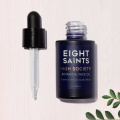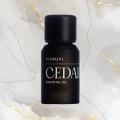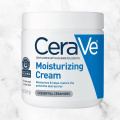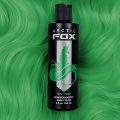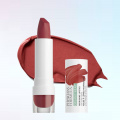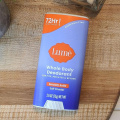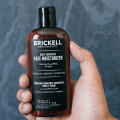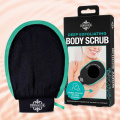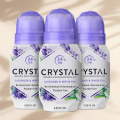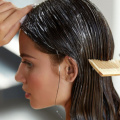Glycerin for Skin: Top 8 Benefits And Ways to Use for Dewy Skin
Explore the benefits of glycerin for skin — a magical skin ingredient. Understand how this ingredient can boost your skin health, offering you a radiant and moisturized complexion.
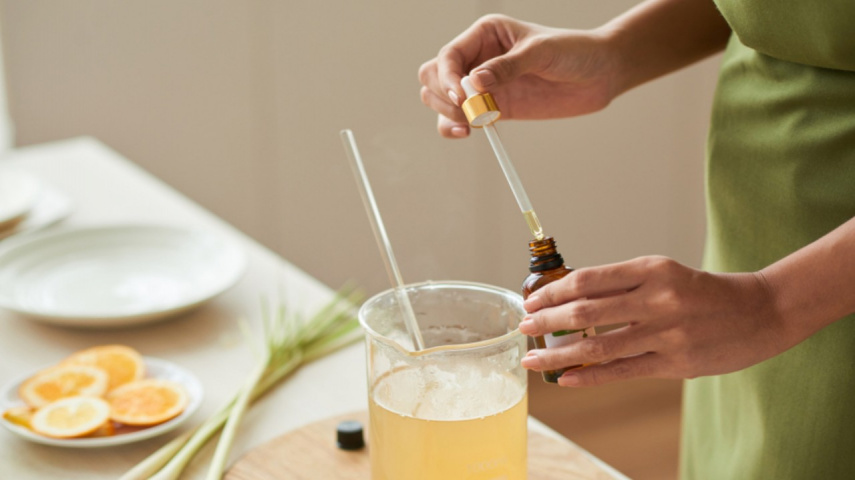
Glycerin, often referred to as glycerol, is a skincare superstar known for its remarkable moisturizing properties and its ability to enhance the overall health and appearance of the skin. In this article, we will discuss the benefits of glycerin for the skin, including its ability to combat dryness, flakiness, and dullness, which leaves the skin soft, supple, and beautifully hydrated, in-depth. Beyond its hydrating prowess, glycerin contributes to the maintenance of the skin's natural protective barrier, soothing irritation, reducing the appearance of fine lines and wrinkles, and whatnot (1). Glycerin's versatility knows no bounds - thus, let us dive into the world of glycerin for skin care, exploring its numerous applications and how to make the most of this powerhouse ingredient in your daily skincare routine.
However, like every coin has its flip side, glycerin, too, has some damaging effects. At its purest, undiluted form, glycerin may cause some adverse effects such as dehydration, skin irritations, and even blistering. So, one must always be careful to dilute it first or use diluted glycerin-containing products like glycerin soaps or lotions to soothe their skin. But make sure to discontinue them if skin irritations arise or persist. We will also discuss the crucial role it plays in many skincare products, offering a wide range of benefits for all skin types.
What Is Glycerin?
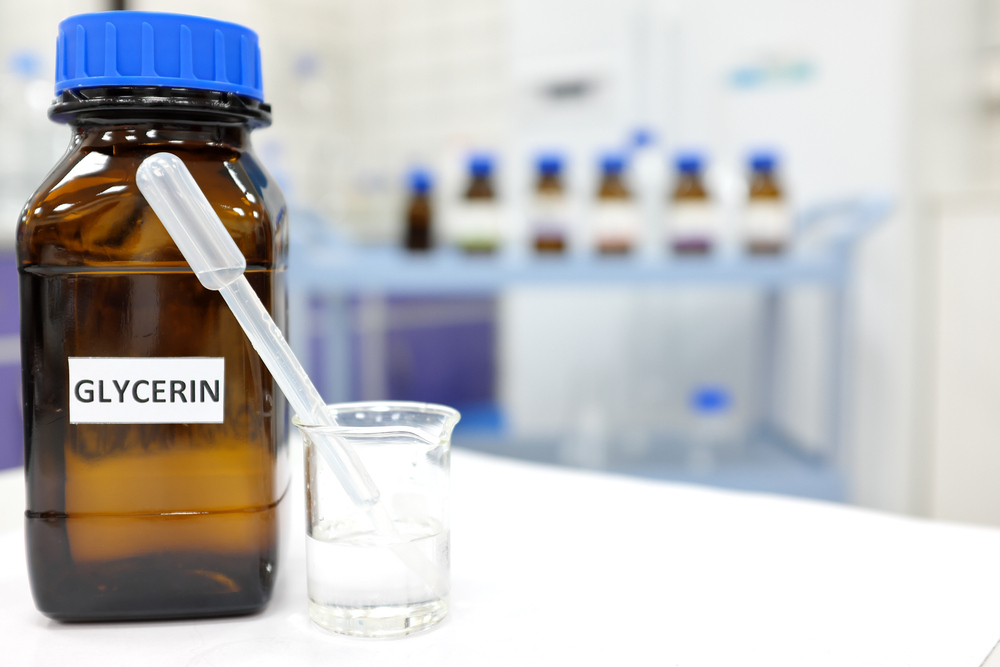
Glycerin, scientifically known as glycerol, is an effective humectant, which means it helps in locking in moisture and preventing loss of water. It's a clear and odorless liquid with a sweet taste that has been extensively used in skin care for decades for its beneficial properties (1). You might have come across it in ingredient lists of food products because it can be used to make food taste sweet or keep it from drying out. While there's a man-made version, it is innately found in both plants and animal fats, and the derivative that we use is usually extracted from plants.
According to a study conducted to study the efficacy of moisturizing ingredients such as alpha hydroxy acids, like lactic acid and glycolic acid, hyaluronic acid, propylene glycol and butylene glycol, sorbitol, and urea, Glycerin’s moisturizing and humectant properties have been deemed the most powerful effective (2). Therefore, it is present in many products like lotions, soaps, and toners because it's great at keeping the skin hydrated.
Top 8 Benefits of Glycerin for Skin
Glycerin is widely used in skincare products due to its numerous benefits for the skin. Here are some of the key advantages of using glycerin for skin:
1. Moisturizes the Skin
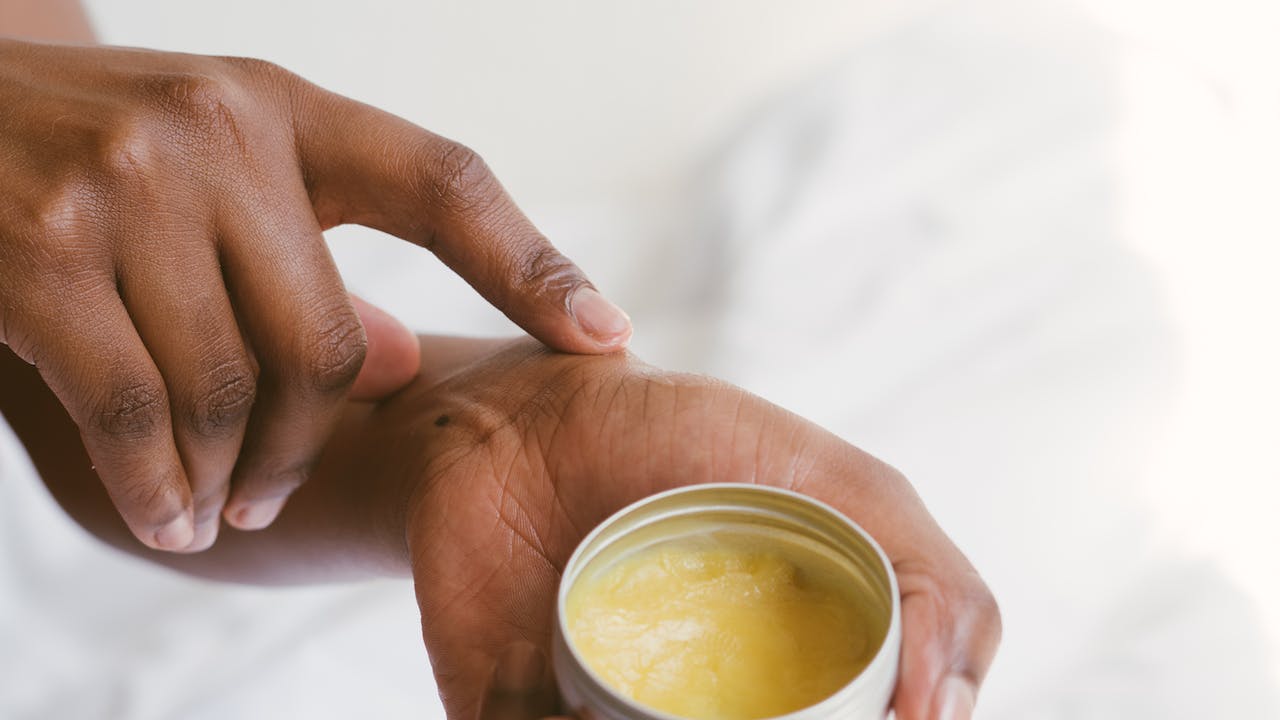
Glycerin is a powerful humectant, meaning it retains the skin’s natural moisture, attracts additional moisture from the environment, and prevents water loss from the deeper layers of the skin. This helps keep the skin well-hydrated, soft, and supple (3). Therefore, glycerin may be used as a moisturizer, especially for people with very dry and dehydrated skin.
2. Helps Strengthen Skin Barrier Function
The skin barrier or stratum corneum is the outermost skin layer, which is crucial for protecting against external irritants, pollutants, and moisture loss. It is very delicate and can be damaged by excessive chemicals, acids, and makeup, dryness, and even cleansing in certain cases (4). Glycerin’s hydrating power helps strengthen the skin's natural barrier. It also triggers the cell signals that initiate barrier repair functions (3).
3. Promotes Healing
Glycerin is also known to have skin-soothing abilities as it offers high amounts of hydration. It can also aid in the wound healing process and reduce skin irritation by adding effective nourishment and building a healthy skin barrier. Therefore, you may apply glycerin to soothe and hydrate damaged or irritated skin, as it will help it recover more quickly (3).
4. Non-comedogenic
Certain products available in the market that claim to offer hydrating and nourishing benefits for dry skin may clog your pores as they contain heavy emollients. However, glycerin has low molecular weight and is non-comedogenic, meaning it won't clog pores, making it suitable for various skin types, especially oily skin and acne-prone skin (5).
5. Smoothes Skin Texture
Regular use of glycerin can lead to smoother skin texture. Moreover, since nourished and hydrated skin cell barrier do not easily contract infections, glycerin also prevents infectious skin conditions and heals lesions and scars rapidly. Moreover, applying glycerin also keeps any roughness, flakiness, or dryness at bay (6).
6. Fights the Signs of Aging
Skin aging signs such as sagging, wrinkling, and the appearance of fine lines may be due to dehydration (7). Therefore, glycerin can improve the appearance of fine lines and wrinkles by retaining water and increasing the moisture levels in the skin cells, thus plumping parched skin, and providing a more youthful, radiant look (8).
7. Promotes Even Skin Texture
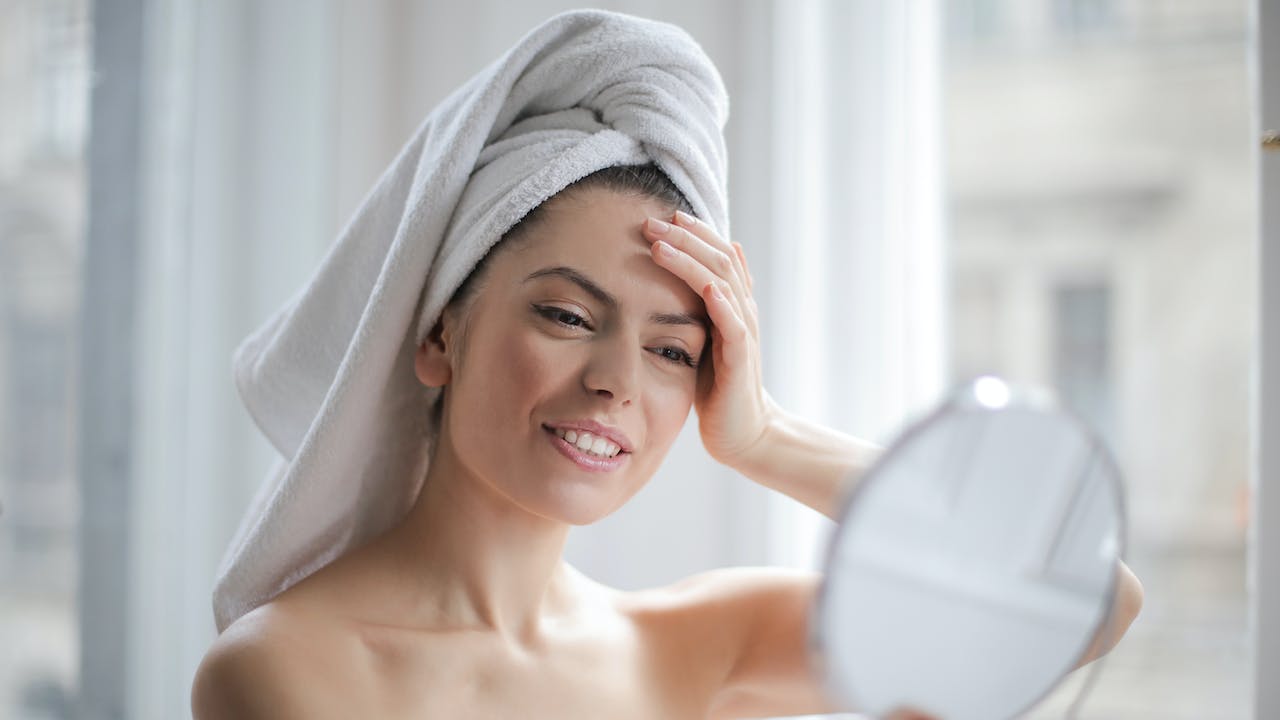
Glycerin can help fade dark spots and hyperpigmentation, contributing to a more even skin tone by increasing the rate of cell turnover and stimulating faster removal of the outer layer of dead skin cells (3).
According to Alexandra Petrou, Founder Of Alexa Skin, “Glycerin isn't made to fade dark spots. However, the ingredient contains exfoliating properties and by removing dead skin cells it may help fade a dark spot.”
8. Treats Skin Conditions
The humectant and soothing properties of glycerin can be beneficial for managing skin conditions like eczema, psoriasis, and dermatitis by reducing itching and inflammation (9).
What Are the Uses of Glycerin?
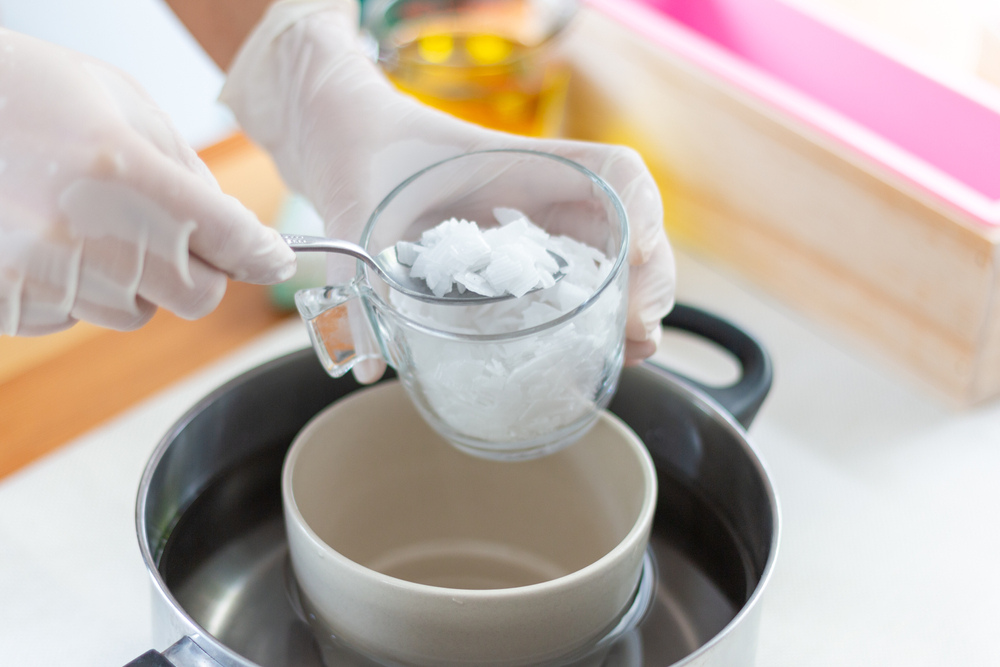
Glycerin does a lot for your skin. It keeps it moist, relieves dry and itchy skin, and helps protect it from environmental aggressors. It also makes your skin look plump and youthful by bringing moisture from deeper layers to the top. So, glycerin is a widely used skincare ingredient to make soaps, body creams, moisturizers, body butter, and moisturizers, making it a favorite ingredient of many skincare companies. Furthermore, since glycerin is a gentle product that is non-comedogenic, you may as well create DIY serums or soaps to reap its excellent benefits for your skin health.
Tips on How to Use Glycerin for Skin
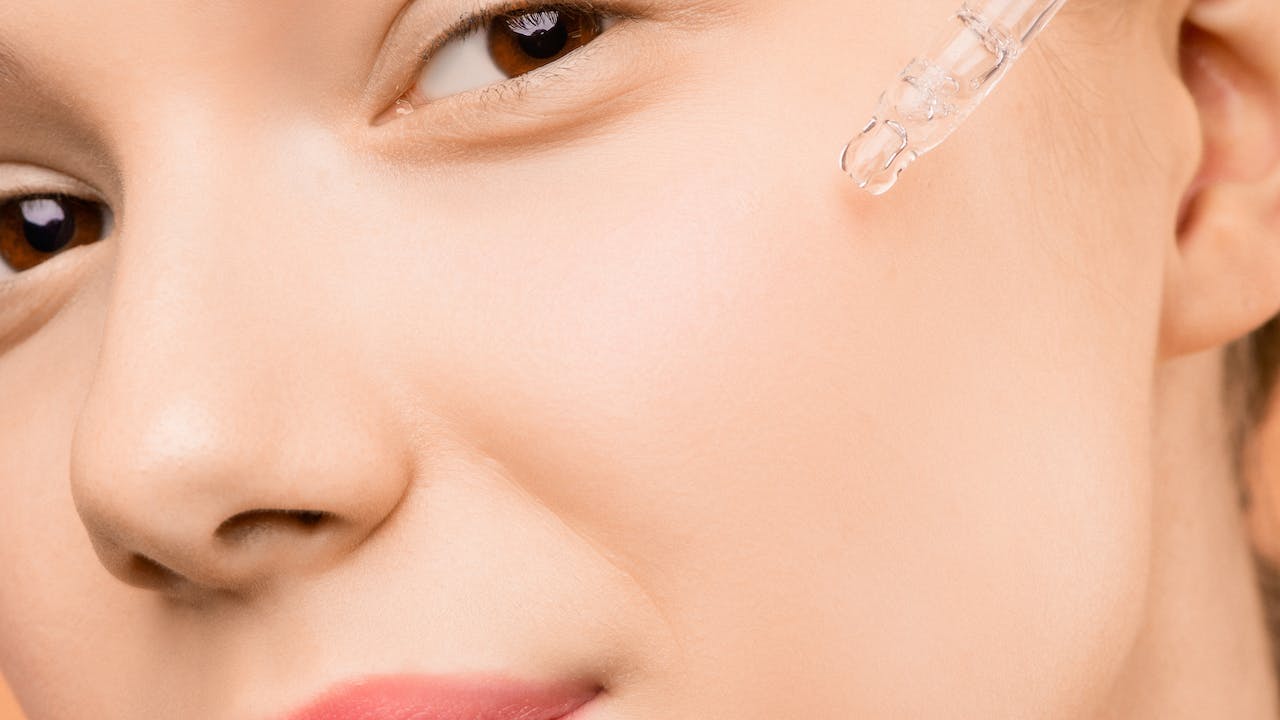
You can reap the benefits of glycerin for your skin by incorporating it easily into your skincare routine. To make sure that it is done correctly, follow the below instructions to avoid any reactions:
Preparation:
- Dilute Glycerin: Pure glycerin can be quite thick and sticky, so it's essential to dilute it with water or another suitable liquid. A common ratio is one part glycerin to three parts water. You can adjust this ratio based on your preferences and skin's needs.
- Perform a Patch Test: Before applying glycerin to your face, perform a patch test on a small, inconspicuous area of your skin to ensure you don't have an adverse allergic reaction towards glycerin.
- Cleanse Your Face: Start with a clean face. Use a gentle cleanser to remove dirt, makeup, and impurities. Pat your face dry with a clean towel.
- Prepare the Glycerin Mixture: Mix the diluted glycerin in a clean container. You can also add a few drops of glycerin to your regular moisturizer or serum for added hydration.
Instructions:
- Use clean fingertips or a cotton pad to apply the glycerin mixture to your face. Be careful to avoid the sensitive eye area.
- Gently massage the glycerin mixture into your skin using upward and outward motions. Focus on areas that tend to be drier.
- Afterward, lightly pat your face to help the glycerin absorb.
- Depending on your skincare routine, you can follow with your regular moisturizer, sunscreen (if it's daytime), or other skincare products.
Frequency: You can use glycerin on your face once or twice a day, depending on your skin's needs. It's often applied as part of the morning or evening skincare routine.
Other Roles of Glycerin in Your Beauty Routine
Glycerin benefits can be achieved by incorporating it into your skincare in several different ways, such as:
- Makeup Primer: Apply a small amount of glycerin to your face before applying makeup to create a smooth canvas. It can help makeup adhere better and last longer.
- Eye Cream: Incorporate glycerin into your DIY eye cream to reduce the appearance of fine lines and wrinkles around the eyes.
- Hair Care: Glycerin can also benefit your hair. Add it to your conditioner, or use a glycerin-based hair serum to tame frizz and add shine.
- DIY Hand Sanitizer: Glycerin can be included in DIY hand sanitizers to counteract the drying effects of alcohol while still effectively sanitizing your hands.
- Underarm Skin: Apply glycerin to soothe and hydrate the underarm skin, especially after shaving or waxing to prevent irritation.
- Nail Care: Glycerin can be used to moisturize cuticles and strengthen nails. Apply a small amount to your nails and cuticles regularly.
- Anti-chafing Solution: Glycerin can help prevent chafing between thighs or other areas prone to friction. Apply a thin layer to reduce discomfort.
DIY Glycerin Recipes to Add to Your Routine
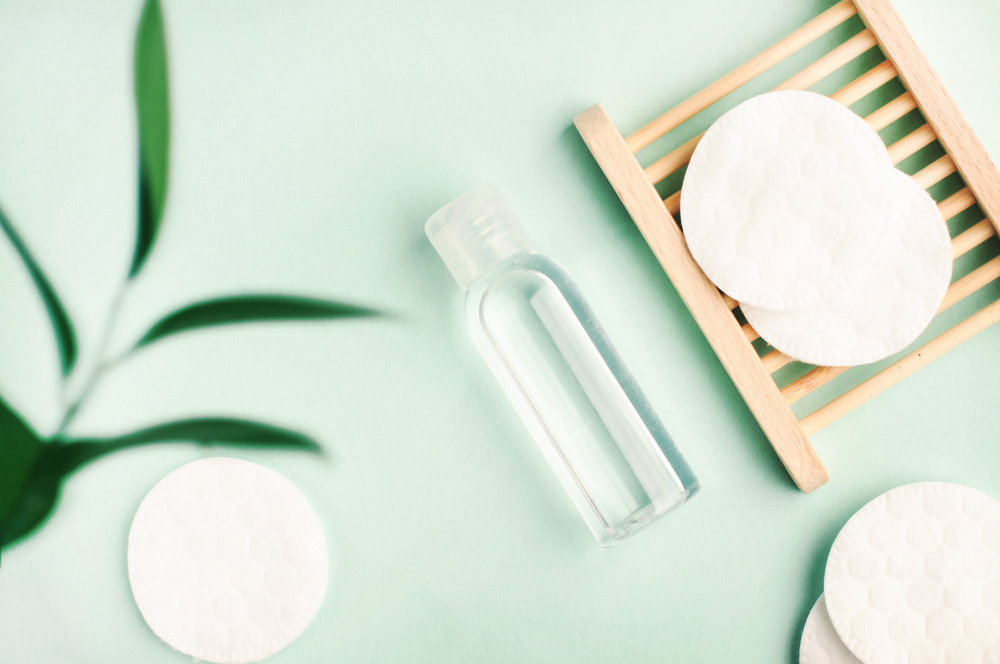
Glycerin can be easily incorporated into various skin care products, including creams, lotions, serums, and masks, making it a versatile and accessible option for skincare routines.
Adding glycerin to your skincare routine can provide hydration and numerous benefits for your skin. Here are several ways to incorporate glycerin into your routine:
1. Glycerin Serum
Mix glycerin with other skincare serums or oils to create a custom hydrating serum tailored to your skin's needs.
2. Glycerin Toner
Mix glycerin with water in a 1:3 ratio (one part glycerin to three parts water). Use this mixture as a hydrating toner after cleansing your face. Apply it with a cotton pad or by gently patting it onto your skin.
3. Glycerin Moisturizer
Add a few drops of glycerin to your regular moisturizer to boost its hydrating properties. Mix well before applying it to your face.
4. DIY Face Masks
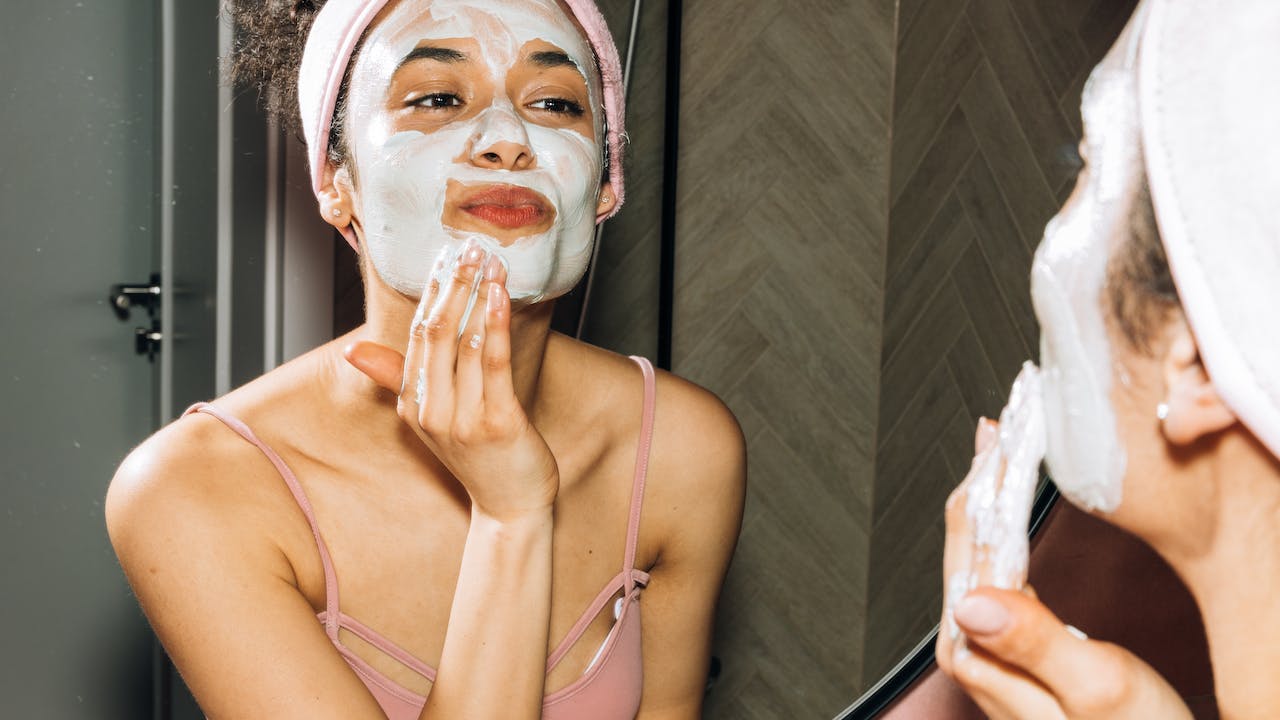
Include glycerin in your DIY face masks. Combine it with ingredients like honey, yogurt, or aloe vera gel for added moisturizing benefits. Some examples of DIY face masks are:
- Exfoliating Glycerin Face Mask
Take 1 tablespoon each of glycerin, oatmeal (finely ground), and plain yogurt. Combine the ingredients and gently scrub your face with the mixture. Leave it on for 10-15 minutes, then rinse.
- Acne-fighting Glycerin Face Mask
Take 1 tablespoon each of glycerin and bentonite clay and mix it with a few drops of tea tree oil. Create a paste, apply it to your face, and let it dry for 15 minutes before rinsing it with warm water.
- Brightening Glycerin Face Mask:
Mix 1 tablespoon each of glycerin, lemon juice, and turmeric powder and apply the mixture to your face for 10-15 minutes, then rinse with cool water.
- Soothing Glycerin Face Mask for Dryness
Combine 1 teaspoon of glycerin with 1 tablespoon each of cucumber juice and plain yogurt. Apply the mask and leave it on for 15-20 minutes before rinsing.
5. Overnight Mask
Create an overnight hydrating mask by mixing glycerin with aloe vera gel. Apply the mixture to your face before bedtime and rinse it off in the morning.
6. Body Lotion Or Cream
Add a few drops of glycerin to your body lotion or moisturizing cream for enhanced hydration, especially on dry body parts like elbows and knees.
7. Glycerin Lip Balm
Combine glycerin with beeswax and essential oils to create a homemade lip balm that keeps your lips soft and moisturized.
8. Glycerin Bath
Add a few tablespoons of glycerin to your bathwater to help lock in moisture and leave your skin feeling soft and smooth.
9. Spot Treatment
Dab a small amount of glycerin on dry patches or areas prone to flakiness for targeted hydration.
10. Hydrating Mist
Mix glycerin with water and a few drops of your favorite essential oil in a spray bottle. Use it as a refreshing hydrating mist throughout the day.
Conclusion
Glycerin for skin offers many benefits such as hydration, barrier protection, skin soothing effects, etc. It is generally safe for most skin types and is well-tolerated, making it suitable for daily use. However, it is essential to understand that individual reactions to skincare products can vary. When introducing glycerin or glycerin-based products into your skincare routine, it's a good practice to perform a patch test on a small area of your skin to ensure you don't experience any adverse reactions. Additionally, consulting with a dermatologist or skin care professional can help you make informed choices about incorporating glycerin into your skincare regimen.





 JOIN OUR WHATSAPP CHANNEL
JOIN OUR WHATSAPP CHANNEL



































